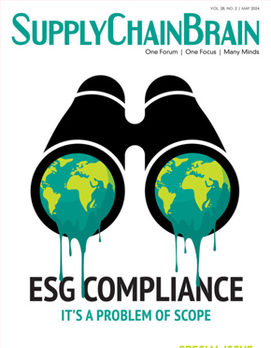
There’s no shortage of shortages these days. Triggered by increasingly frequent global disruptions, supply failures from toilet paper to semiconductors have left companies scrambling for solutions.
For years, supply chains have prioritized cost cutting and efficiency over safety buffers built through strong partner collaboration, transparency, and responsiveness. As a result, this paradigm of just-in-time supply chains has left many brand manufacturers ill-equipped to handle the impact of the pandemic.
There’s a lack of real-time collaboration and data visibility in external supply chains, which presents a major risk to brand manufacturers. Despite the fact that more than 50% of consumer brands’ supply chain data originates outside their four walls, they’re hesitant to evolve their software architecture beyond internal operations. For brand manufacturers, there’s huge potential for capturing and making use of external data, by digitizing their external supply chains for greater network visibility and responsiveness. That’s why brand manufacturers should investigate technology tools that enhance communication and visibility across the end-to-end supply chain.
Data Visibility
Cost cutting and cost efficiency have been the focus of supply chain leaders for years, but given the change in customer expectations during the pandemic, brands need to readjust their priorities. Operating under the just-in-time supply chain model has created significant barriers to collaboration within supply chain networks, including:
- Lack of trust and transparency between brand manufacturers and their supply chain partners, leading to transactional, adversarial relationships;
- Lack of processes and tools to work as closely and effectively with external partners as with internal teams;
- Lack of two-way data visibility between businesses, with suppliers unable to see demand changes coming down the pike, and brands unable to see available capacity from their suppliers’ operations, and
- Bandwidth limitations within the planning department, making it difficult to communicate with dozens or even hundreds of external suppliers.
To overcome these challenges, brand manufacturers must prioritize near-real-time supply chain data visibility and partner collaboration. Streamlined multi-enterprise collaboration speeds up decision making and ensures that all parties are on the same page, thus improving resilience against future disruptions and supply variability.
Streamlined Supplier Onboarding
Enhancing multi-enterprise communication and streamlining external partner onboarding processes are critical ways that brand manufacturers can improve collaboration and mitigate future disruptions. The COVID-19 pandemic spurred many organizations to rely more on technology to connect teams, communicate with partners and stay productive. Today, industry-leading organizations are investing in digital platforms such as Zoom to connect and collaborate in real time.
Similarly, adopting a centralized supply chain software system would allow brand manufacturers and their supply chain partners to speak the same data language and share the same view of real-time data, making it easier for brand manufacturers not only to communicate faster with their suppliers, but also to select and onboard suppliers that best meet their capacity requirements. Faster data and communication exchanges lead to greater responsiveness and lowered risk of supply shortages.
Digitizing Supplier Shop Floors
Another way that brand manufacturers can work better with their external partners to mitigate disruptions and shortages is by championing the benefits of digitization on the supplier shop floor. Historically, this area has been an informational black box, due to incongruent software systems. As a result, brands can’t easily view supplier capacities, and have difficulty planning orders around blind spots of data. By digitizing their shop-floor operations, external manufacturers can drastically improve their operational efficiency through automated materials and production tracking, enabling faster execution on requests such as order changes and product recalls. All the while, the data visibility enabled by the digitized production floor is helping the supplier to enable better collaboration with brand customers.
Capturing and sharing real-time supplier shop-floor data offers benefits to both sides of the brand-supplier relationship, and is critical to positioning digitization as a mutual gain for all parties.
In order to catalyze collaborative relationships within their external supply chains, brand manufacturers need to invest in technological tools that enable multi-enterprise data visibility and analysis, which can enhance their ability to avert supply shortages. Brands must prioritize investments in the people, processes, data and technology needed to improve visibility across the entire multi-enterprise supply chain network — ultimately building and strengthening relationships for long-term growth.
Hank Canitz is vice president of industry solutions at Nulogy.







